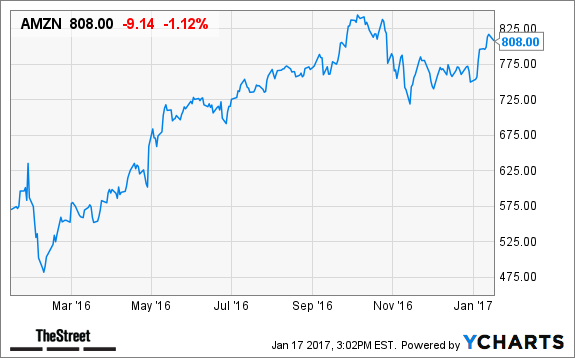How to buy US Treasury Bonds from India in 2023
Content

Similarly, the iShares 3-7 years Treasury Bond ETF (IEI) seeks to track the investment results of an index composed of US treasury bonds with remaining maturities between three to seven years. For the iShares 1-3 years treasury bond ETF (SHY), the corresponding period is between one and three years. Treasury bills may be purchased by individuals, businesses, trusts, banks, insurance providers, provident funds, state governments, and financial organisations. T-bills come at zero-coupon rates, meaning that no interest is paid on them. They are redeemed at a nominal amount, allowing the owner of the T-bill to profit from the gap. As an illustration, suppose a person buys a 91-day T-bill of Rs 100 face value at Rs 95.
Thus, you can also easily exit your investment before the bond maturity date if you urgently need funds. This makes G-Secs more liquid than fixed-income instruments like bank fixed deposits (FDs) wherein you have to pay a penalty for premature withdrawal of the deposit. Some government bonds, such as IIBs, offer real returns that are unaffected by inflation. Investing in such bonds increases the real value of the deposited funds, protecting investors from inflation-related losses especially in the rising inflation scenario. Capital gains on Sovereign Gold Bonds are exempt in the hands of individuals.

The yield/ return to the investors is the difference between the maturity value – face value ₹1,00,000 and the issue price of ₹ 94,120. They help to raise revenue for the economy’s immediate needs. This account may be used by individuals looking for short-term investments. In a crisis, this permits shareholders to convert their interests into cash. Treasury ETFs let investors gain passive exposure to US Government bonds.
Limitations of investing in T-bills
Investing in treasury bills is a promising way to diversify your portfolio and build more safety and security into it. Liquidity is a bonus that allows you to access funds within a year of investing. However, you will need to balance your wealth creation strategy by also investing in equity and debt instruments with a higher yield. This will set you on a path to creating wealth and achieving your financial goals, which can be pursuing higher education, travel, home purchase or planning for financial freedom. Since the government issues treasury bills via RBI, the maturity risk is zero. It belongs to the debt-based asset class, considered highly safe and secure.

However, they may invest in US treasury bonds through publicly traded ETFs. Since the they are issued by the US Federal Government, they are one of the safest instruments you can invest in. They are considered risk-free assets because there is no risk that the investor will lose their principal. Treasury bonds are AAA-rated securities and are safer than corporate bonds. If you invest in the US markets, you would have heard about the 10-year treasury yield at some point.
#1. Risk-free investment option
The treasury yield is nothing but the annual interest rate the US Government pays on its debt obligations (treasury bonds). After you purchase treasury bills, you get the treasury bill certificate from the issuing authority. On this certificate, all the things will be mentioned, like your name, the amount invested, the date of maturity, and the amount you will get after the maturity period.
In essence, your options are limited to purchasing bonds on the secondary market or through bond exchange-traded funds (ETFs). The maturity of these bills is 364 days from the date of issue. They’re auctioned on Wednesday, and payment is due the following Friday when the term ends. These bills are offered in multiples of Rs.25,000, with at least Rs. 25,000 as a deposit. Maturing in 182 days from the date of issue, these bills are given on Wednesdays, and bills are due by the end of the term on Friday.
How to buy US Treasury Bonds from India (
These bills are offered in multiples of Rs.1 lakh, with a minimum investment of Rs.1 lakh. Treasury bills or T-bills offer a secure, low-risk investment option with assured returns. They serve as an alternative to fixed deposits or liquid funds, providing simplicity, flexibility, and the backing of the Indian government. You can choose T-bills against the alternatives available if you are looking for a low-risk investment. You can be sure that you will receive the expected returns on them. They are considered zero risk because the government guarantees their repayment, so there is no chance of default or losing money on this investment.
- When you receive the principal back at the full face value, the profits from the transactions are considered as Short-Term Capital Gains (STCG).
- Investing in the stock market carries risk; the value of your investment can go up, or down, returning less than your original investment.
- Treasury bills are debt instruments with a maturity period of only up to one year, which are sold at a discount to their face value, and redeemed at their face value upon maturity.
- The government of India and the RBI determines the fixed treasury bills rate.
- For example, if you buy a 91-day tenure treasury bill at INR 97, and the face value is INR 100.
Even so, investing in bonds can be overwhelming for many investors and even for knowledgeable wealth partners and HNIs/family offices. YubiInvest eliminates this overwhelm with the power of new-age technology. In conclusion, investing in US Treasury Bonds from India is a viable option for those looking for a stable investment opportunity.
#1. You are looking for low-risk investments and desire assured returns
Further, if you wish to liquidate your T-bills before the maturity date, you have the option to sell them on the secondary market and convert them into liquid cash easily. A balanced investment portfolio has a mix of equity-based and debt-based based instruments. It is also a mix of investment opportunities in the private sector and sovereign-guaranteed instruments.
- Bonds have long-dated maturities, and they pay interest twice a year.
- Also, beware that if your account balance is INR and you invest in USD, you’ll have to convert your money, and the broker will charge you a small currency conversion fee.
- So the auction process is basically a process to discover the price you’d pay for the bond, also called the weighted average price of the bond.
- As a retail investor, you can open an online Retail Direct Gilt (RDG) Account with RBI and invest in treasury bills and other governemnt securities.
- Facing an issue with your studies on public services in India.
Assume the true value (also called the Par value), is Rs.100. This T-bill is issued to you at a discount to its par value, Say Rs.97. After 91 days, you will get back Rs.100, and therefore you make a return of Rs.3. Think of it; this is as good as buying a stock at Rs.97 and selling it after 91 days at Rs.100. The only difference is that this is a guaranteed transaction, meaning, there is no risk of you selling below 100 (or above 100). You are investing in Bonds/T-bills issued by the Government of India.
But with the volatile market conditions, it can be challenging to identify safe investment options. Only the central government has the power treasury bills india to issue the treasury bills. The Reserve Bank of India brings the Treasury Bills to the market on behalf of the central government.
While treasury ETFs come with certain advantages, there are a few things one needs to keep in mind. Since treasury ETFs do not mature, they do not offer similar protection for your investment amount as a treasury bond does. The underlying securities have no chance of defaulting, but investors are exposed to principal risk when investing in treasury ETFs. Indian investors cannot invest directly in US treasury bonds.
Characteristics of treasury bills
Treasury bills are sold for a minimum of Rs 25,000 and in multiples of that amount. Here are some scenarios where investing in T-bills can prove to be the best option. In this blog, we discuss treasury bills in detail, exploring their unique features, benefits, limitations and much more. The discounts and the Treasury Bills rates are subject to change over the years.
In such an event, you can decide to sell this bond in the secondary market, pretty much like how you buy and sell stocks on NSE. The interest payment gets credited directly to your bank account linked to your DEMAT account, just like the way you receive the dividends from a company. The 2022 Impact Report is focused on IBRD Sustainable Development Bonds and Green Bonds, and the IBRD-financed projects supported by these bonds.




Leave a Reply